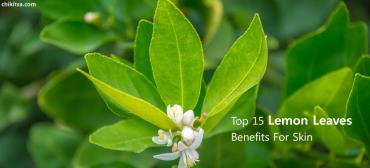The Incredible Health Benefits Of Papaya Leaves

Carica papaya or simply papaya plant is a valuable plant having several benefits, especially in the field of medicine. Papaya is called the “common man’s fruit†as it is easily available at a reasonable price and has a high nutritive value such as vitamins C and E and also alkaloids and compounds like choline, carposide, and carpin. The following article will discuss the health benefits of papaya leaves and the uses of papaya leaves.
Are Papaya Leaves Edible?
Fresh and tender papaya leaves are edible when boiled. The leaves must be washed thoroughly with water before use. A juice can also be prepared by crushing or grinding a few fresh papaya leaves. The juice is quite bitter to taste. This juice can be consumed once or two times a day.
What Are Papaya Leaves Good For?
There are numerous health benefits of papaya leaves. In some Asian countries, fresh papaya is boiled or steamed and eaten just like other leafy vegetables.
Incredible Health Benefits Of Papaya leaves For Skin And Body
1. Anti-Cancer And Anti-Tumor Activity
Constituents of papaya leaves containing cytokines help to regulate the immune system by inhibiting the growth of cancer cells. Papain present in papaya leaves breaks down the cancer cell wall and its proteins into smaller amino acids. Another compound isothiocyanate is equally effective against cancers of colon, breast, prostate, and pancreas and also in leukemia.
2. Dengue Fever
Several types of research conducted recently have proven that papaya leaf juice helps in reducing swelling of the liver and also increases white blood cell and platelet count.
3. Antimalarial Activity
In cases of malaria, papaya leaves are prepared in the form of tea. However, this effect of papaya leaves lacks research and has not yet been proven scientifically.
4. Facilitates Digestion
Carpaine is a compound that is extracted from fresh papaya leaves which helps in neutralizing micro-organisms which cause infection of the gastrointestinal tract and interfere with the process of digestion.
How Papaya Leaves Increase Platelets?
Papaya leaves juice has gained immense popularity among the general population as a natural or herbal remedy for dengue patients as it is capable of increasing platelets in such patients and prevents complications.
Another reason for increased acceptance of papaya leaves for increasing platelets is its easy availability to people of all sections of the society and reasonable cost with least or no side effects.
There are no studies that specifically mention the action of papaya leaves on platelets. A hypothesis suggests that the active principles present in papaya leaves increase platelets by the following three ways
- Inhibition or stoppage of immune-mediated destruction of platelets
- Prevents the virus from suppressing of the functioning of the bone marrow which reinstates platelet production
- Stabilizes or repairs membranes of cells infected with dengue virus
Studies have also proven that papaya leaf juice helps to stabilize platelets and an increase in platelet count was observed in patients by the third day after administration of papaya leaf juice without the need for platelet transfusion.
How To Use Papaya Leaves For Dengue?
There are several ways in which you can achieve the best benefits of papaya leaves. Some of the possible ways are
- Papaya leaves either dried or fresh can be crushed or cut into minute pieces. Boil these crushed leaves in water for about 10-15 minutes. Strain the boiled water in a flask or a bottle that can be consumed.
- Fresh papaya leaves can be crushed into a juice using a grinder. This juice is bitter to taste. A few drops of lemon can be added to enhance the taste and 1-2 teaspoons of this juice can be consumed once or twice a day.
Other Benefits Of Papaya Leaves
The papaya plant is famously called “nutraceutical†since the plant has potential medicinal and health benefits apart from its own nutritional content
Besides increasing platelet counts in dengue fever and preventing its complications, some other health benefits of papaya leaves are
- Papain, an enzyme isolated from papaya leaves is often dried and used in toothpaste, chewing gums and also for treating digestive troubles.
- Similar compounds are also useful in the treatment of rheumatoid arthritis.
- Antifungal and antibacterial activity of both dried and fresh leaves has been proven by experimenters. Leaf extracts have shown a strong antifungal effect against the microorganism Candida albicans.
- A study has also proven the anti-HIV1 activity of Carica papaya leaves by virtue of the presence of phytochemicals, flavonoids, tannins, carbohydrates, and triterpenes.
- Tannins present in papaya leaves are also helpful for enhancing wound healing.
- Some Asian countries report smoking of dried papaya leaves has helped to relieve asthma. However, no research has been done to confirm this.
- Dried papaya leaves along with seeds have been used since old times to induce abortion.
- Fresh green tea of dried papaya leaves works as an antiseptic, anti-inflammatory and also as a blood purifier.
Recently, since the increasing awareness about the health benefits of papaya leaves for dengue, dried and pulverized papaya leaves are also being sold commercially as a health supplement for making tea.
Although no significant side effects have been reported, the use of papaya seeds should be strictly avoided along with leaves especially by young men and women as these seeds are capable of producing infertility among both genders.
Due to its bitter taste, papaya leaf juice may create a purgative effect and may induce abortion in pregnant women who consume dried papaya leaves. Pregnant and lactating women must consult their doctor before eating papaya fruits, seeds or leaves as these are capable of inducing abortion.
Special precautions must also be taken while using papaya leaves for children as these leaves have a purgative action. Cases of side effects and toxicity in large doses have also been reported in cases of children who were given papaya leaves in unmonitored doses for treating dengue fever.
Ancient medicinal and Ayurvedic texts mention the utility of almost all parts of the papaya plant. Many studies have been undertaken in the recent past to further explore and find out newer medicinal and non-medicinal uses of this plant so that people belonging to all sections of the population can gain maximal benefit.









